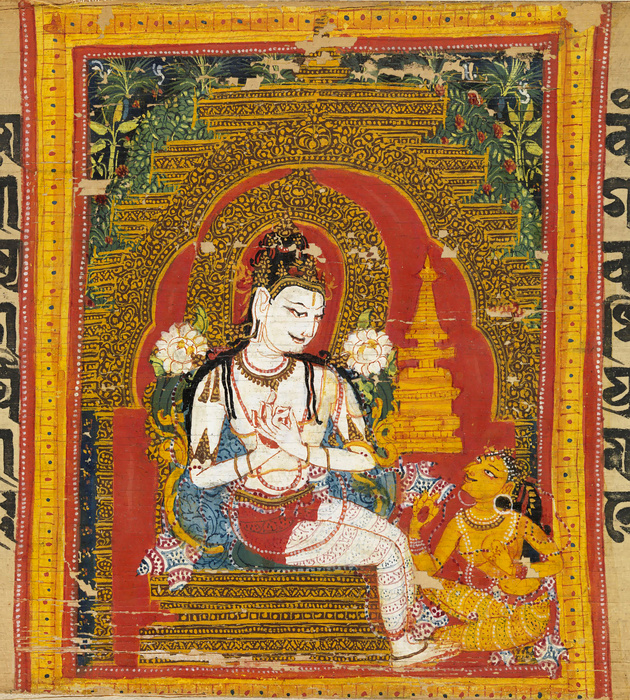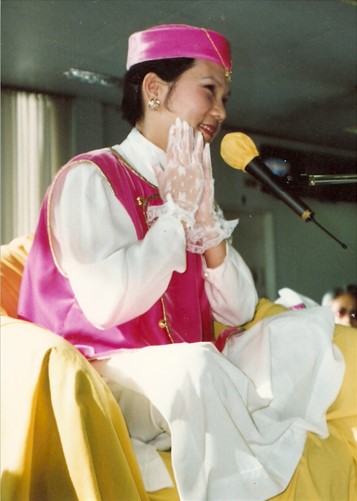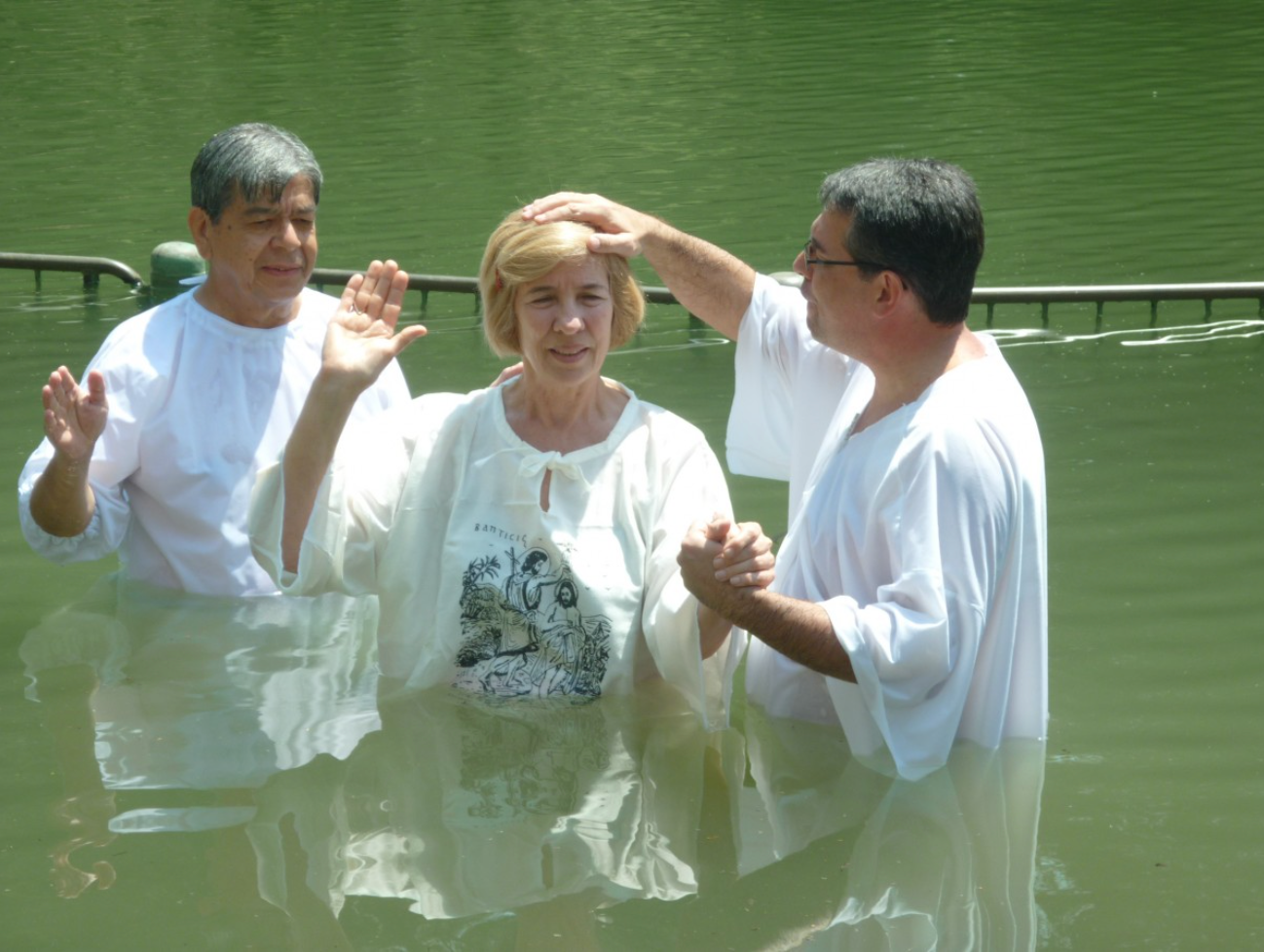|
Chinese Cults
Heterodox teaching ( zh, s=邪教, p=xiéjiào) is a concept in the law of the People's Republic of China (PRC) and its administration regarding new religious movements and their suppression. Also translated as "cults" or "evil religions", "heterodox teachings" are defined in Chinese law as organizations and religious movements that either fraudulently use religion to carry out other illegal activities, deify their leaders, spread "superstition" to confuse or deceive the public, or "disturb the social order" by harming people's lives or property. What exactly these definitions mean has been interpreted in various ways since their establishment in 1999/2000. Organizations that are found by local police forces in the PRC to be distributing heterodox teachings are targeted for disruption, and its leaders and organizers are severely prosecuted. The current law regarding heterodox teachings was established by the Standing Committee of the National People's Congress (NPCSC) in October ... [...More Info...] [...Related Items...] OR: [Wikipedia] [Google] [Baidu] |
Law Of The People's Republic Of China
The Law of the People's Republic of China, officially referred to as the Socialist legal system with Chinese characteristics, is the legal regime of China, with the separate legal traditions and systems of mainland China, Hong Kong, and Macau. China's legal system is largely a civil law system, although found its root in Great Qing Code and various historical system, largely reflecting the influence of Continental European legal systems, especially the German civil law system in the 19th and early 20th centuries. Hong Kong and Macau, the two Special Administrative Regions, although required to observe the constitution and the basic laws and the power of the National People's Congress, are able to largely maintain their legal systems from colonial times. During the Maoist period (1949–1978), the government had a hostile attitude towards a formalized legal system, because Mao and the Chinese Communist Party (CCP) "saw the law as creating constraints upon their power." The ... [...More Info...] [...Related Items...] OR: [Wikipedia] [Google] [Baidu] |
Mentuhui
Mentuhui () is a Christian movement in China. The group was founded in Shaanxi in 1989 by Ji Sanbao.()). Ji was born in 1937 and claimed to be Jesus. He was influenced by the Jesus Family. He ordained 12 disciples, and this led to the name of the group, ''Association of Apostles''. By 1995, the group claimed to have over 250,000 followers. By 1999, it may have had more than half a million members.April/May 2006 OMF (20 October 1999). Retrieved on 25 October 2011. In 2013, the sect had approximately 100,000 members in . and had a presence in |
Cybersect
Cybersectarianism is the phenomenon of new religious movements and other groups using the Internet for text distribution, recruitment, and information sharing. As an organizational type The term, as coined by political scientist Patricia M. Thornton at the University of Oxford, describes "a unique hybrid form of politico-religious mobilization" adopted by a handful of syncretic qigong (气功) groups that emerged in the People's Republic of China (PRC) during the late 1980s and early 1990s, and were subjected to extreme repression following the crackdown against banned religious and spiritual organizations in 1999. Cybersectarianism as an organizational form involves: "highly dispersed small groups of practitioners that may remain largely anonymous within the larger social context and operate in relative secrecy, while still linked remotely to a larger network of believers who share a set of practices and texts, and often a common devotion to a particular leader. Overseas supporte ... [...More Info...] [...Related Items...] OR: [Wikipedia] [Google] [Baidu] |
Ching Hai
Ching Hai (born Trịnh Đăng Huệ;Vietnamese name consisting of three parts in the following order: a family name, a middle name and a given name. 12 May 1950), commonly referred to as ''Suma'' or '' Supreme Master Ching Hai (Chinese: 清海無上師, romanized: Qīnghǎi wú shàng shī)'', is a Vietnamese spiritual leader of the Guanyin Famen (Chinese) or Quan Yin method transnational cybersect. The practice had existed predating the common usage of the internet. Partridge, Christopher (2004New Religions: A GuideOxford University Press, p. 263-264 Based out of Taiwan, she is estimated to have 2 million followers worldwide. Ching Hai founded the Loving Hut vegan restaurant chain and vegan Celestial Shop fashion company under Supreme Master Ching Hai International Association. Life and career Ching Hai was born to a Vietnamese mother and a Chinese father, on 12 May 1950 in a small village in the Quảng Ngãi Province in Vietnam. In 1969, she began a relationship with a Ger ... [...More Info...] [...Related Items...] OR: [Wikipedia] [Google] [Baidu] |
Mahayana
''Mahāyāna'' (; "Great Vehicle") is a term for a broad group of Buddhist traditions, texts, philosophies, and practices. Mahāyāna Buddhism developed in India (c. 1st century BCE onwards) and is considered one of the three main existing branches of Buddhism (the other being ''Theravāda'' and Vajrayana).Harvey (2013), p. 189. Mahāyāna accepts the main scriptures and teachings of early Buddhism but also recognizes various doctrines and texts that are not accepted by Theravada Buddhism as original. These include the Mahāyāna Sūtras and their emphasis on the ''bodhisattva'' path and ''Prajñāpāramitā''. ''Vajrayāna'' or Mantra traditions are a subset of Mahāyāna, which make use of numerous tantric methods considered to be faster and more powerful at achieving Buddhahood by Vajrayānists. "Mahāyāna" also refers to the path of the bodhisattva striving to become a fully awakened Buddha (''samyaksaṃbuddha'') for the benefit of all sentient beings, and is thus als ... [...More Info...] [...Related Items...] OR: [Wikipedia] [Google] [Baidu] |
Guanyin Famen
Guanyin Famen or Quan Yin Buddhism (Chinese: 觀音法門), the teachings of Meditation Society of ROC (Chinese: 中華民國禪定學會) or Ching Hai World Society (Chinese: 清海世界會), is a school of Mahayana Buddhism-like cult found in 1988 by the ethnic-Chinese Vietnamese teacher Ching Hai. Guanyin Famen is one of the religious organizations officially suppressed in the People's Republic of China due to its legal status as a " heterodox teaching" ( zh, s=邪教, p=xiéjiào). This designation was first given to the organization in 1995 and was re-affirmed in 2014 and 2017. The government's 2017 zh, p=xiéjiào, labels=no website listed Guanyin Famen as one of eleven "dangerous" groups, a more serious designation than merely appearing on the list of twenty suppressed groups. As such, it has made the leap to cyberspace and become a kind of cybersect. See also * Heterodox teachings (Chinese law) Heterodox teaching ( zh, s=邪教, p=xiéjiào) is a concept in the l ... [...More Info...] [...Related Items...] OR: [Wikipedia] [Google] [Baidu] |
Taiwan
Taiwan, officially the Republic of China (ROC), is a country in East Asia, at the junction of the East and South China Seas in the northwestern Pacific Ocean, with the People's Republic of China (PRC) to the northwest, Japan to the northeast, and the Philippines to the south. The territories controlled by the ROC consist of 168 islands, with a combined area of . The main island of Taiwan, also known as ''Formosa'', has an area of , with mountain ranges dominating the eastern two-thirds and plains in the western third, where its highly urbanised population is concentrated. The capital, Taipei, forms along with New Taipei City and Keelung the largest metropolitan area of Taiwan. Other major cities include Taoyuan, Taichung, Tainan, and Kaohsiung. With around 23.9 million inhabitants, Taiwan is among the most densely populated countries in the world. Taiwan has been settled for at least 25,000 years. Ancestors of Taiwanese indigenous peoples settled the isla ... [...More Info...] [...Related Items...] OR: [Wikipedia] [Google] [Baidu] |
Hong Kong
Hong Kong ( (US) or (UK); , ), officially the Hong Kong Special Administrative Region of the People's Republic of China ( abbr. Hong Kong SAR or HKSAR), is a city and special administrative region of China on the eastern Pearl River Delta in South China. With 7.5 million residents of various nationalities in a territory, Hong Kong is one of the most densely populated places in the world. Hong Kong is also a major global financial centre and one of the most developed cities in the world. Hong Kong was established as a colony of the British Empire after the Qing Empire ceded Hong Kong Island from Xin'an County at the end of the First Opium War in 1841 then again in 1842.. The colony expanded to the Kowloon Peninsula in 1860 after the Second Opium War and was further extended when Britain obtained a 99-year lease of the New Territories in 1898... British Hong Kong was occupied by Imperial Japan from 1941 to 1945 during World War II; British administration resume ... [...More Info...] [...Related Items...] OR: [Wikipedia] [Google] [Baidu] |
Mui Yee
Kong Duen-yee (; 1923–17 August 1966), known then as the actress Mui Yee (), was a Chinese movie star in Hong Kong. Career Entertainment In 1937, Mui became an actress in Hong Kong films. Mui appeared in The Sentimental Woman (aka The Heartbroken Woman), a 1937 Romance film directed by So Yi and Liu Shut. In several films, Mui depicted a wealthy wife scorned and other romantic characters. Mui's film career ran throughout the 1950s, at a time when mainstream cinema in Hong Kong was just beginning to challenge the conservative Asian culture. Mui's last film was Flesh and Blood (aka Renegade, The Criminals), a 1963 film directed by Leung Fung. Mui is credited with over 140 films. In 1960, Mui was diagnosed with tongue cancer, she retired from acting and decided to become a preacher as which she acted for about seven years. Christian leader In 1963, facing certain death, Kong turned from a worldly, carnal lifestyle to religion and reacted to the Pentecostal revival which ha ... [...More Info...] [...Related Items...] OR: [Wikipedia] [Google] [Baidu] |
New Testament Church (Hong Kong)
New Testament Church () is a Christian denomination from Hong Kong, founded by the Hong Kong movie actress Mui Yee in 1963 then led by her daughter Zhang Lude (張路得, Ruth Chang). The leadership was then passed to Elijah Hong, and he settled down the New Testament Church on Mount Zion in Taiwan. The Chinese government classifies the church as heterodox. History ''Spreading ideas to South East Asia'' After Mui Yee fresh out of her movie career, she returned to Christianity in 1957. Since 1959, Mui Yee has travelled across South East Asia to preach gospel to develop her church.Farrelly, P. (2010). Mount Zion and Typhoon Morakot: a new religious movement’s response to a natural disaster, Religioscope. https://english.religion.info/2010/04/01/taiwan-mount-zion-and-typhoon-morakot-a-new-religious-movements-response-to-a-natural-disaster/ However, she was not trained formally as a preacher, many people doubted her teaching at first. In 1963, just after Mui Yee founded the New ... [...More Info...] [...Related Items...] OR: [Wikipedia] [Google] [Baidu] |
Hua Xuehe
Spirit Church (灵灵教 Linglingjiao), also known as Efficacious Spirit Teachings, is a new religious movement from China. It was founded in the 1980s, in Hunan by Hua Xuehe (华雪和), a primary school teacher with high school education from Jiangsu. Hua was a member of the Chinese Communist Party who became a Protestant in 1978 and joined the True Jesus Church in 1979. In 1982, he left the True Jesus Church and established his own movement. Its areas of presence include Jiangsu, Jiangxi, Anhui, Hunan, Hubei, Henan and Shandong. It has Pentecostal features and may be regarded as a break-away group from the Chinese Pentecostal group, the True Jesus Church. Hua claims to be the second incarnation of Christ and teaches that we live in a new era when Christians should pray in his name rather than in the name of Christ. His followers celebrate Hua's birth date, January 19, instead of Christmas. They regard as evidence of Hua's divine nature the fact that his name (华雪和 Hua Xueh ... [...More Info...] [...Related Items...] OR: [Wikipedia] [Google] [Baidu] |
Spirit Church (China)
Spirit Church (灵灵教 Linglingjiao), also known as Efficacious Spirit Teachings, is a new religious movement from China. It was founded in the 1980s, in Hunan by Hua Xuehe (华雪和), a primary school teacher with high school education from Jiangsu. Hua was a member of the Chinese Communist Party who became a Protestant in 1978 and joined the True Jesus Church in 1979. In 1982, he left the True Jesus Church and established his own movement. Its areas of presence include Jiangsu, Jiangxi, Anhui, Hunan, Hubei, Henan and Shandong. It has Pentecostal features and may be regarded as a break-away group from the Chinese Pentecostal group, the True Jesus Church. Hua claims to be the second incarnation of Christ and teaches that we live in a new era when Christians should pray in his name rather than in the name of Christ. His followers celebrate Hua's birth date, January 19, instead of Christmas. They regard as evidence of Hua's divine nature the fact that his name (华雪和 Hua Xueh ... [...More Info...] [...Related Items...] OR: [Wikipedia] [Google] [Baidu] |





